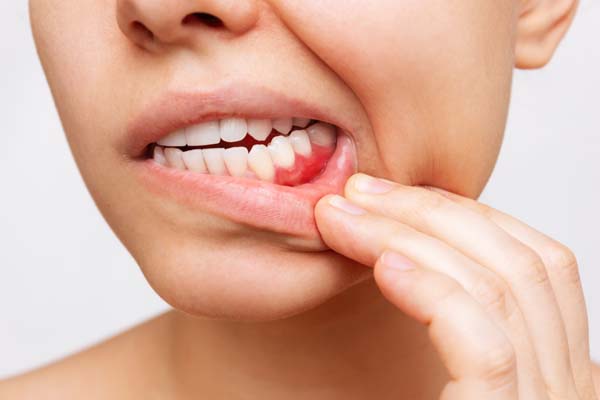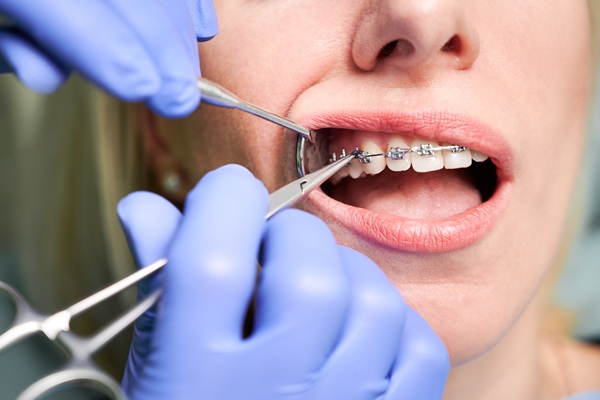Is There a Relationship Between Gum Disease and Diabetes?

Many individuals are familiar with gum disease. What may be unknown, however, is the relationship of diabetes to problems with the gums. Diabetes is the result of multiple diseases within the body that accumulate from too much sugar in the bloodstream. Sugar often becomes the culprit that is responsible for an individual's gum disease. Continue reading to find out how gum disease, diabetes and sugar all relate.
Gum disease and diabetes
Below is an overview of the relationship between gum disease and diabetes, which are two conditions that can negatively affect people's overall health.
Gum disease
Gum disease comes in many stages, starting with a small infection and ending with periodontal disease, which is the most advanced stage of infection reached in the gums. A number of factors may contribute to gum disease, but it is typically the result of a lack of oral hygiene, poor genetics, or excessive sugar consumption.
The relationship
Individuals who have been diagnosed with diabetes are at a higher risk of developing oral problems such as gum disease. When one's blood sugar levels are not normal, diabetes is the result. Unfortunately, diabetics who do not manage their blood sugar levels effectively may experience a number of health conditions, including nerve damage, heart problems, and gum disease.
In the case of gum disease, high blood sugar levels negatively affect the blood vessels, which results in a lack of nourishment and oxygen to the soft tissues of the oral cavity. If the soft tissues are not receiving the appropriate amount of oxygen and nourishment, then gum disease can develop. Additionally, blood sugar levels that are not maintained or controlled can cause an increase of glucose in the saliva. Excessive glucose in the saliva becomes a breeding ground for bacteria, which means multiplication throughout the oral cavity, thus increasing the chances that gum disease will develop.
On the flip side, gum disease can also lead to the development of long-term diabetes. When the soft tissues of the oral cavity are infected for long periods of time, the infection can travel to other parts of the body through the bloodstream. Excessive sugar consumption often causes infections in the oral cavity, and when it travels in the bloodstream, blood sugar levels can elevate or even become out of control, thus resulting in diabetes.
Preventing gum disease
Developing a regular oral hygiene routine and faithfully carrying it out can go a long way toward avoiding gum disease. The following simple habits can help ward off infections of the gums:
- Brush the teeth at least twice a day or after every meal
- Floss daily
- Rinse with salt water once a day or use a gentle mouthwash 3-4 times a week
- Undergo routine dental cleanings from a dentist
Find out more from a general dentist
Individuals who are worried that diabetes may develop as a result of gum disease may find it helpful to consult with a general dentist. An evaluation can be completed to determine whether gum disease is even present. From there, the dentist can prepare a treatment plan and put it in place. Reach out today to ask questions or to get started with a consultation.
Request an appointment here: https://www.foothillfamilydentists.com or call Foothill Family Dentistry at (949) 506-2115 for an appointment in our Foothill Ranch office.
Check out what others are saying about our dental services on Yelp: Gum Disease in Foothill Ranch, CA.
Recent Posts
Most dental issues (predominantly tooth decay and gum disease) are caused by plaque, a sticky bacterial film. Continue reading to learn how tooth decay and gum disease are connected. This is why bacterial plaque is often the focus of rigorous at-home oral care regimens and regular dental exams.Plaque bacteria thrive by coexisting in areas where…
Seeing a preventive dentist is a vital part of your oral healthcare routine each year. However, many people skip this essential step because they do not want to spend time at a dental office. Fortunately, a preventive dentist provides many valuable services that can help your smile last a lifetime and stop future issues before…
Preventive dentistry involves using the right products. This includes selecting the right toothpaste. There is a type of toothpaste for every person. If you want to enhance your preventive dentistry brushing strategy, here are some tips on choosing the right toothpaste.The attending dentist will be the judge of the most suitable toothpaste. The dentist knows…
Preventive dentistry goes beyond undergoing dental checkups and cleanings twice a year. Read on to learn how preventive dentistry can protect against various oral health issues. You ensure a lifetime of good oral health and ultimately your general health if you keep those regular checkups. Preventive dental care checkups help you stay proactive in many…


